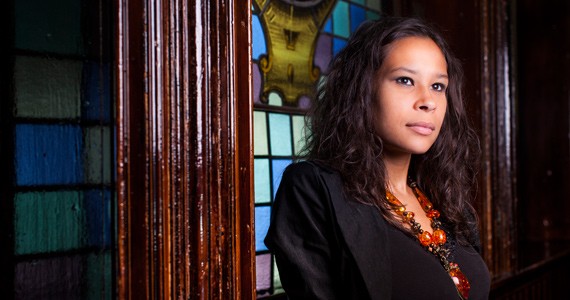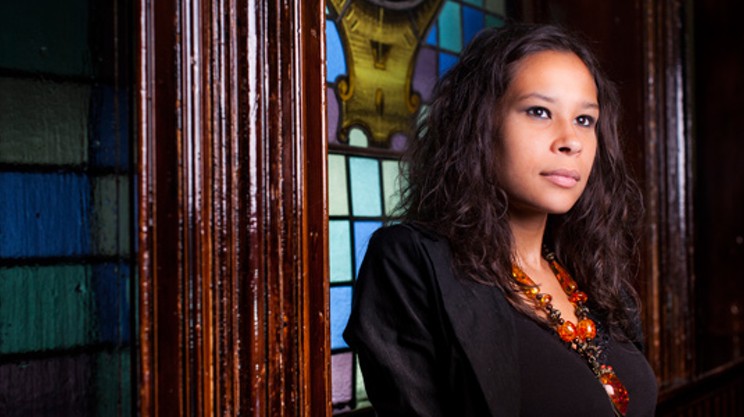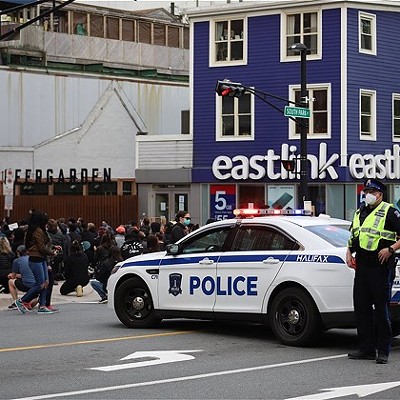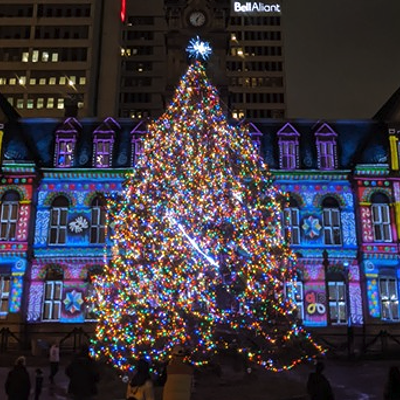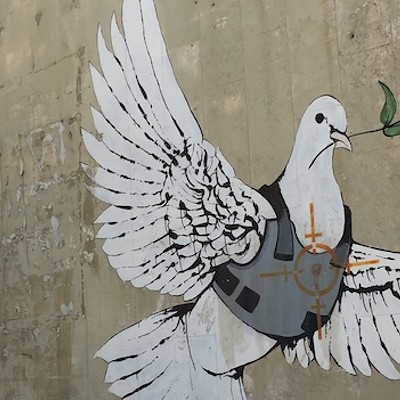El Jones, Halifax’s poet laureate for the last two years, announced today she’ll be leaving Nova Scotia for a writer-in-residence program at the University of Iowa. It’s a big blow to the city’s social justice and arts community. It also brings up the question of who’s going to replace Jones as HRM’s new poet laureate.
What does a poet laureate do?
The city’s poet laureate program was created in 2001, and selects a new poet or spoken word artist every two years “who has achieved excellence amongst their peers and whose work is of relevance to the citizens of HRM.” The poet acts as an advocate for the literary arts and is supposed to reflect the life of the city in their work. They’re also expected to act as an advocate for the language arts, attend events across the municipality and “attract people to the literary world.” During Jones’ term, for example, she was asked to attend approximately six public appearances a year by the municipality.
Who has previously been a poet laureate?
Before Jones was selected in 2013, Tanya Davis served in the role from 2011 to 2012. Artist, poet and musician Davis most recently was seen starring in Andrea Dorfman’s lyrical feature film “Heartbeat.” The three other poet laureates Halifax has so far been graced by include Shauntay Grant (2009-2011), Lorri Neilsen Glenn (2005-2009) and inaugural poet Sue MacLeod (2001-2005).
Grant organized several programs during her term as Poet Laureate, including bringing together the first national Canadian Poets Laureate conference and the Jazz Festival’s Words+Music series. Glenn, the author and editor of over a dozen books, organized a youth writing collective called Wordfishing during her tenure and produced several events such as an MSVU Authors’ Night and a “Book Crawl.” MacLeod concluded her four-year term as the city’s inaugural Poet Laureate by publishing an anthology of prose, poetry and photographs of Halifax that featured the work of some 60 artists.
“As our first poet laureate,” says MacLeod, “I have wondered what kind of setting Halifax offers for writers and artists. What sort of a 'character' has the place itself become?" She believes the anthology provides a multitude of answers to this question. "Halifax," she writes in the Introduction, "emerges in the pages of this book as a place of contrasts---coastal vistas and downtown streets, war ships and peace demonstrations—a contemporary city that will never shake its past."
Who’s the next poet laureate?
It could be you! Jones’ term ended in June and the city hasn’t selected a new candidate yet. Spokesperson Jennifer Stairs says HRM is in the process of accepting Jones’ final report on the role and debriefing about the position. Traditionally, the city has sent out a call for submission immediately after the current poet laureate’s term finished, but Stairs says summer is a challenging time to assemble a judging panel so the city has extended the call to later in the fall.
Who’s eligible to apply?
Based on previous applications, interested parties should: have made a significant contribution to poetry or spoken word and the literary life of HRM; be prepared to accept the responsibilities of the position; be accustomed to citizen engagement; be professionally published (either in a trade book, print publication or via audio recordings); and, of course, be a current resident of HRM. The selection committee will review application based around the impact made within the poetry/spoken word/literary world (20 points), citizen engagement (30 points), the candidate’s goals for the two-year term (20 points) and their excellence in their craft (30 points).
Would I get paid?
Yeah, but not very much. The poet laureate receives a $4,000 honorarium for the two-year term.
What other responsibilities are there?
Compose and present poems for official HRM events, make public appearances, publicly present compositions, sit on the selection committee for the next poet laureate and provide HRM with a final report about the position.
How do I apply?
Nominations will be called for this fall, and will probably consist of a similar package to last time (consisting of CV, nomination form, a “letter of support” about the poet's contributions to the community, goals for the term and three examples of published works. The selection committee will narrow that down to a shortlist of candidates, who will be interviewed individually before a winner is announced. Follow @hfxgov on Twitter as the call for entries will likely be coming soon.

